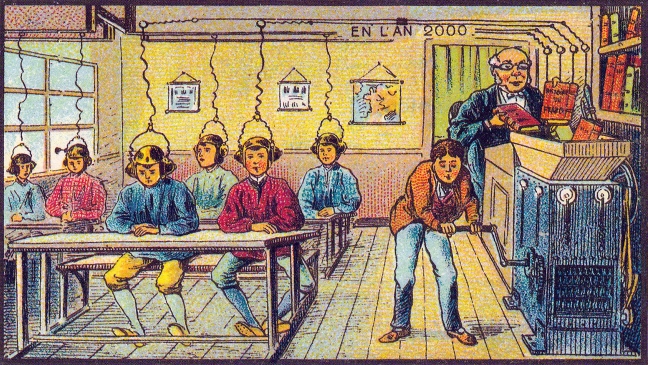We often hear warnings about too much reliance on technology in the classroom. There is no doubt that devices like smartphones can be an enormous distraction, and policies surrounding technology use need to be sensible.
However, Sweden has recently taken things a step further. The Swedish government has announced plans to curb the use of digital devices like tablets in schools, in favour of focussing more on printed books and handwriting.
Some of their suggested changes sound quite reasonable. I have been a big proponent of physical textbooks, and I also think that technology use should be measured. Having said that, some of the claims that have been used to support Sweden’s new “analogue” approach have, in my view, been rather overstated.
Digital tools in the classroom
For example, the world-famous Swedish medical university, the Karolinska Institutet, claimed in a statement, that “there’s clear scientific evidence that digital tools impair rather than enhance student learning”.
I don’t think this can be stated so confidently. It very much depends on the way that technology is used, as wider research on technology in education has demonstrated.
For instance, in previous columns, I have highlighted a 2017 evidence-based review by Maya Escueta and colleagues, which showed that “intelligent tutoring systems” can contribute to more practice of both basic and advanced skills in several subjects, especially mathematics.
The original statement from the Karolinska Institutet, which I translated from Swedish, was more nuanced than the snippets of it that were reported in the media. But the statement still made some grand claims, including that technology had “major, negative consequences for students’ knowledge acquisition”.
Threats and opportunities of edtech
However, this claim is made without any reference to research specifically about knowledge acquisition. Instead, the statement, which is signed mainly by developmental psychologists, refers to research on distraction, multitasking and the negative influence of screen use on reading comprehension.
These are all fair points, but ignore any upsides from other sources, such as the research of Escueta and colleagues.
The statement also draws on a widely-cited report by the global management consultancy firm, McKinsey, which argues that the most effective teaching approach is a combination of mostly teacher-directed instruction and some inquiry-based learning. Yet the statement authors cite McKinsey as being entirely negative about inquiry-based learning.
To make matters worse, the McKinsey report is, in my view, flawed, as it uses Programme for International Student Assessment (Pisa) 2015 data to imply causation and combines the answers students could give in an unhelpful way.
The same Pisa data is often uncritically cited by both proponents and opponents of Direct Instruction, because, with the right analysis, it appears to support either standpoint. And it is never smart to make causal claims with correlational data, anyway.
The way technology is used in education matters
To be clear, there absolutely can be downsides to technology use. It is important for us to be critical of uncritical adoption of technology. We also need to be careful that we don’t exaggerate the downsides - just as we shouldn’t exaggerate the upsides.
Numerous sources point out both the threats and opportunities of technology. In Sweden’s case, it is perfectly reasonable to say that the way technology is used in education matters. But it’s not warranted to claim, without qualification, that technology impairs student learning.
I don’t think that even the harshest critics of technology in the classroom really believe that; I’d bet they know at least one example of effective technology use from their own practice.
Does this mean we should never trust what renowned institutes or experts say? Of course not. Within their own expertise, they can firmly contribute to educational debates and are - like most contributors - well-intentioned. But it does show that it is best to always follow up on every claim.
Christian Bokhove is professor in mathematics education at the University of Southampton and a specialist in research methodologies





